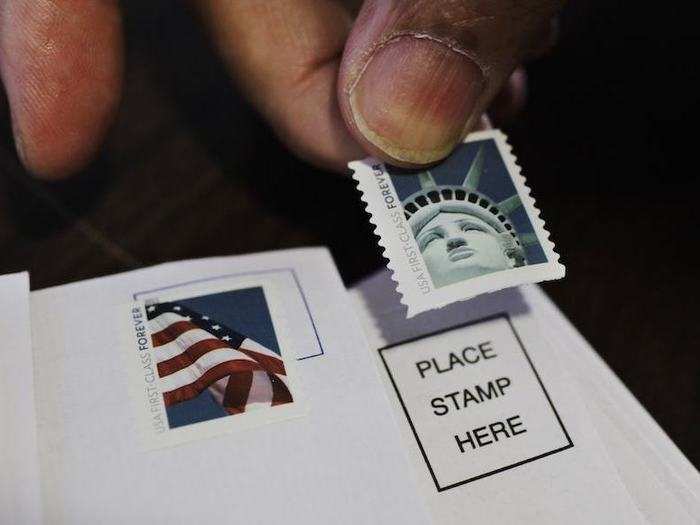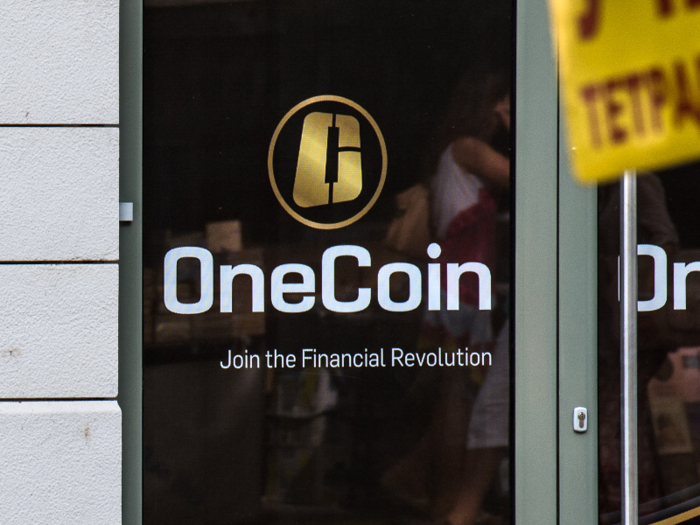- Home
- slideshows
- miscellaneous
- 8 side hustles that are actually scams
8 side hustles that are actually scams
Mystery shopper

Multi-level marketing companies

MLMs, as they're known, often have a veneer of respectability. After all, many of us (or our parents) grew up with brands like Avon, Amway, and Tupperware.
But many MLM businesses behave more like pyramid schemes, prioritizing recruiting new members over actually selling product. If your potential MLM seems laser-focused on acquiring sellers rather than customers, that's a serious red flag.
Other warning signs include costly training and seminars, pressure tactics to get you to buy inventory, and an uninspiring product line that has poor reviews or isn't something you'd want to use yourself.
Envelope stuffing

If you're looking for a low-pressure gig you can do from home in the evening, you've almost certainly seen ads for the opportunity to stuff envelopes.
But don't get too excited: Envelope stuffing is a scam.
"There are hundreds of jobs posted that claim to pay you for stuffing envelopes. Sadly, there isn't a single job available that will pay you to do this," Saranya Ramanathan, a personal finance blogger at One Fine Wallet, told Business Insider.
Here's the grift: You are directed to send a small fee for instructions, after which you are instructed to recruit other people to buy the same envelope-stuffing opportunity. Like a pyramid scheme, you're only paid if other people join in.
Copy editing and writing

There are enough editorial scams online to write a book, but one common one results in you performing pro bono editing for a faceless company.
The con starts when you respond to an online ad looking for a writer or an editor. You conduct an online interview so there's no easy email audit trail, and you're given an assignment as the final step in the process. You're asked to edit a project or write some sample articles – but after you turn it in, you never hear from them again.
Son Ngo, who was bitten by this particular scam, told Business Insider: "The enormous number of freelancers ensures that the agency can repeat this trick again and again."
Paid online surveys

Did you know that you can make money just by completing online surveys? That's the contention of many online ads, at least.
The idea is that companies are willing to pay for market research, so it's valuable to them to pay people to complete surveys. But like other scams (like envelope stuffing), there's no job here — you typically just pay a fee up front to learn how to get on the paid survey train, but get nothing in return.
"Some survey sites make you sign up for a paid membership before you can answer any surveys. The website takes your money and then no surveys materialize," Business finance writer Priyanka Prakash told Business Insider. "Another problem is that each survey pays so little, it could take days to make even a dollar. And many survey sites ask for your personal information, putting you in danger of identity theft."
Medical billing and coding

To be sure, there are medical billing and coding jobs that can be done from the comfort of your home; many of the people who do this work do it on a contract basis in a home office.
But scammers know this and offer non-existent medical billing jobs online. The scam, though, is that they charge you up front for training, software, and supplies needed to launch your own medical billing service.
You can probably guess where this is going: These companies generally have no connection to doctors, hospitals, or insurance companies and don't follow through with actual work.
Driving

If you have a car, you're a good driver, and enjoy being on the road during your off hours, then driving for a rideshare company like Uber or Lyft might be a good idea.
But there are want ads out there for other driving services, and they aren't the same sort of sure bet.
Often, these driving job scammers operate like the mystery shopping scam. They pay you up front, but for some reason they'll cancel your services and tell you to keep some of the money for yourself — just wire the remainder back. Of course, it's a fraudulent check and you lose both the money you wire them and the cost of the bounced check.
Cryptocurrency scams

Sometimes it seems like everyone but you is making money in the world of cryptocurrency investing, and what better side hustle than one in which you let technology and a little money build a fortune on your behalf?
But the world of bitcoin and other nascent cryptocurrencies is a veritable minefield, and one which you genuinely need to understand before you have any hope of striking it rich. Crypto investors have been victimized by Ponzi schemes, for example, as well as straight-up fraudulent ICOs. OneCoin defrauded investors to the tune of $3.8 billion, for example, with a non-existent cryptocurrency. The best advice: Steer clear entirely.
Here's how an expert recommends avoiding a scam side hustle

There are a lot of scams out there. Markovitz recommends doing your research on any potential company.
"Is the opportunity real? Ask the company to let you talk to people doing it already. If they're reluctant, there might be a problem," he said.
You can protect yourself by following these other common sense precautions:
- Never pay anything up front. Any potential gig should be paying you, not the other way around. You should avoid paying for equipment, training materials, or orientation instructions.
- Don't deposit a check with the intention of sending some or all of that money back to the employer right away. While there are sometimes legitimate reasons for doing this, the reality is that it's far too easily the centerpiece of fraud.
- Don't work for free. It's okay to demonstrate your skills as a part of an interview, but do it in a way that leverages work you've already done, or you might find yourself working for someone for free without realizing it.
- They offer you too much money, or hire you too easily, without seeming especially curious about your skills, background, experience, or potential.
- Beware of opportunities that don't tell you anything about the company that's allegedly doing the hiring, or who rely on chat and conferencing rather than email for routine communication.
- If it feels weird, it is weird. Walk away.
Popular Right Now
Popular Keywords
Advertisement